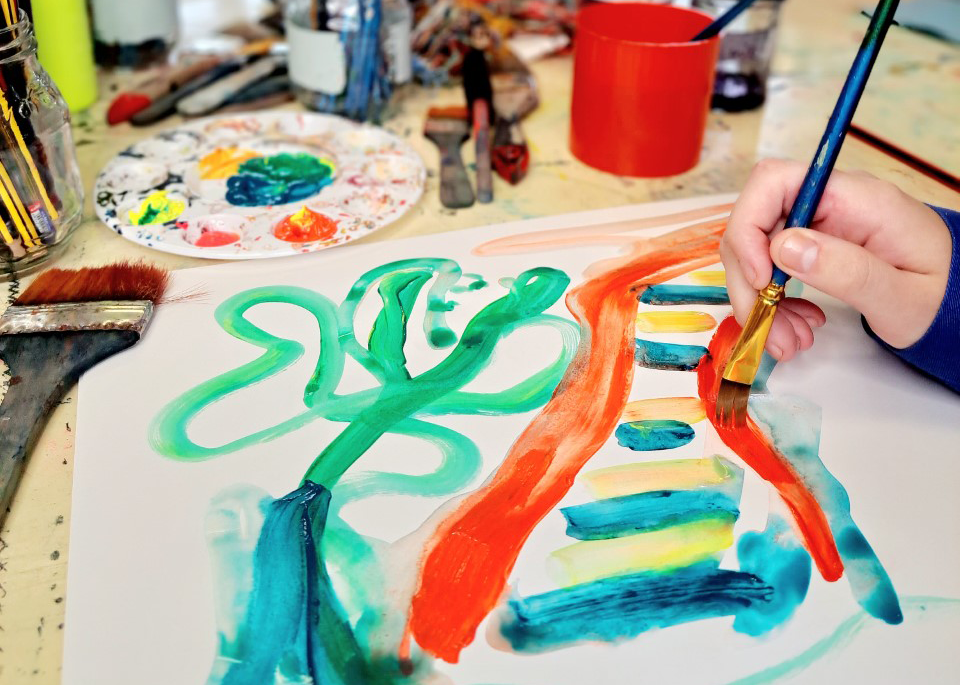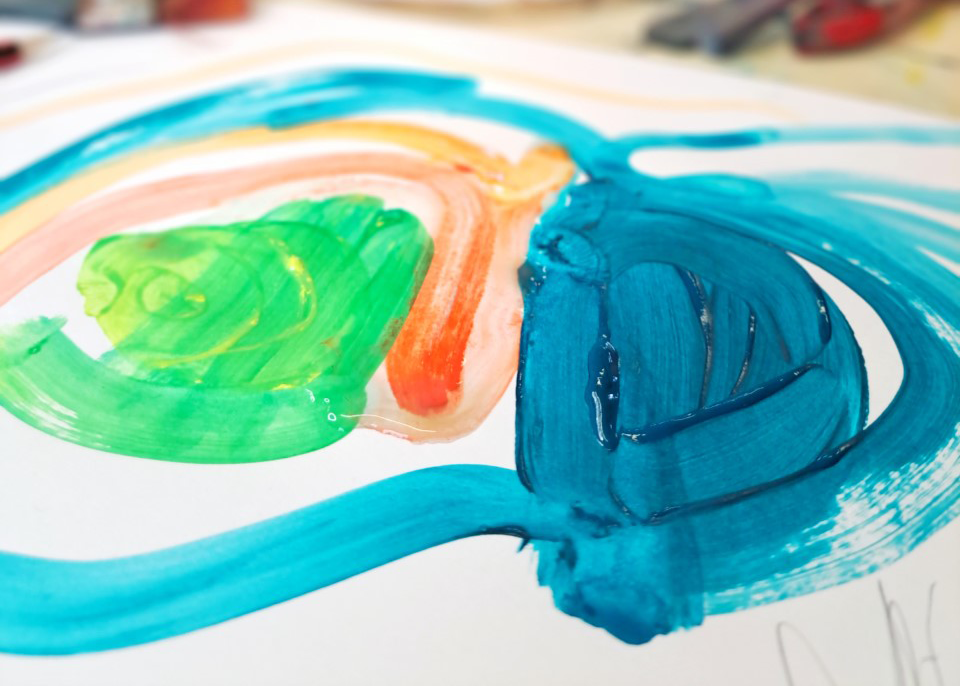Hopes for new art therapy degree apprenticeships
Opinion
Dr Kelly Jayne has been part of setting up and designing the first degree apprenticeship for art psychotherapy at Teesside University. We invited Kelly to tell us more about the course, and her hopes for what this new route into training can achieve.

What makes the degree apprenticeship different?
The degree apprenticeship will take its first cohort this September. Not only does it maintain the integrity of the original training pathways, it’s more accessible for those less able to access the self funded training.
The course is fully funded – and trainees get a living wage
The usual route into art psychotherapy is to do a master’s programme yourself: you choose the university, and while you’re training, you go on placement. But you have to self-fund it. My experience of art psychotherapy training was extremely positive, life-changing, and life-enhancing. However, it limits becoming an art psychotherapist to people who are able to self-fund their education.
The higher degree apprenticeship programme is different because it is funded by the government. When someone is training for a degree apprenticeship, they’ll get a reasonable living wage from their employer to do the training. Apprentices will have the security of employment, but also the required training and learning, on and off the job, to become an art psychotherapist. It opens up the opportunity for anyone who has relevant experience and makes it easier to access training for those who might not have been able to afford to go through the usual route.
Applications are through employers
You don’t apply to the training as an individual; it must be through an employer. You either apply through a degree apprenticeship job post, or through your current employer.
My first piece of advice to anyone who would really like to access the training would be: are you already working in an NHS Trust, volunteer organisation or private sector organisation? Could you have conversations with your management about whether they could fund the course or access a levy to cover the training costs?
Work with your employer from that point onwards and build up as much experience in the organisation as possible. Secondly, look out for advertised posts for apprenticeship placements.
There is the potential to train anywhere in England
There’s a huge area in the UK where there aren’t any institutions that deliver art psychotherapy training. Our training will be applicable to anyone living in England. People as far as the far pockets of Cornwall, for example, could access the course.
The training itself is a low-residency, blended learning approach, which means a lot of the training is online, with intensive experiential weeks where apprentices come to Teesside University.
There is a block of five days per module where apprentices come and access in-person training with high-profile lectures and guest speakers, such as Dr Chris Wood, Professor Susan Hogan, Professor Julliet King, and Professor Vicky Karkou, to name a few.
We hope this approach will open up opportunities for more people to become qualified art psychotherapists.
How could the degree apprenticeship increase access to art psychotherapy?
We want more people to be able to access art psychotherapy as a treatment and we strongly believe this training can support that.
The apprenticeship training was born out of research on gaps in service provision. It’s informed by what service users have said they want. A huge amount of NHS Foundation trusts and voluntary sector organisations contributed to the initial research and there’s a massive database of people saying, ‘this is what we want’. We have a responsibility to respond to our service users, and that’s why it feels exciting, because we’re making it a reality.
This degree apprenticeship is also about working with employers. Rather than ‘we’re doing this’ and ‘you can access this how it is’, we’re working with employers to design the training that fits in with the employment requirements. It’s a working partnership.
This training will be an investment for employers because they’ll be funding their apprentices. Once employers are invested, we hope they will continue to invest, and that this will expand the intervention as a whole.
Rather than art psychotherapy being perceived as a luxury therapeutic intervention, we hope it will contribute to the various pathways for people who are struggling.
Find out more
You can contact the Professional Apprenticeships Team at apprenticeships@tees.ac.uk and see more information on the Teesside University website: Professional Apprenticeships | Teesside University
Employers
If you’re enquiring as an employer, you can send an enquiry through the contact form. The deadline for employers to apply for this year is 5th September.
Applicants
Employers are being encouraged to advertise new apprenticeship vacancies on the government platform, Find an apprenticeship. You can set up alerts for when vacancies are added.
Introduction and foundation courses
Introductory courses offer excellent insight into the career path of art therapy and give you a chance to find out if the profession of art therapy may be for you. At the British Association of Art Therapy, we fun courses throughout the year.

